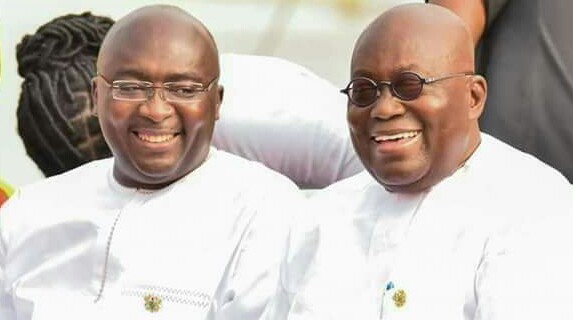Managing the Public Debt Stock: Akufo-Addo administration has been one of the best – Bawumia
- Advertisement -
Vice-President Dr Mahamudu Bawumia has said that the management of the public debt stock and cedi against other foreign currencies on the exchange front by the President Akufo-Addo-led administration has been one of the best by any government in its first term, since 1992.
According to him, the performance of the cedi in 2020 and 2021 has been handled superbly by the Economic Management Team.
He praised the Central Bank for the yeoman’s role it has played and continues to play to keep the cedi in check, saying, “I doff my hat to the central bank for the work that they are doing in the management of the exchange rate.
The Vice-President gave the assurance at the Central Regional Tertiary Students Confederacy (TESCON) conference held on Saturday at the University of Cape Coast.
Speaking on the theme ‘Breaking the Eight: The role of TESCON’, Dr Bawumia praised the country’s discernment, good judgment, and management of exchange rate, and described it as “the best since 1992 and the performance in 2020 and 2021 simply superb.”
Read More: NDC London South demands Health Minister’s immediate Resignation or removal
On the country’s debt management, Dr Bawumia particularly praised BoG, saying the stability of the cedi had been the same after every election year under the Fourth Republic, notwithstanding the COVID-19 impact.
Touching on the national debt, the Vice-President acknowledged that debt levels had gone up, but pointed out that economic management variables were exceptionally bright and hopeful.
“The debt level has increased, but the government wants to maintain prudent debt level management because if you don’t manage your debt level properly, it will affect your interest rate, exchange rate, inflation rate, and growth rate”, he indicated.
“When the National Democratic Congress (NDC) was in government, their economic mismanagement took us to HIPIC because they had mismanaged the debt level such that there was high inflation, exchange rate, interest rate, and low growth, and later had to be bailed by the IMF,” the Vice-President noted.
Regardless of the world recession due to the outbreak of COVID-19, Dr Bawumia said Ghana’s economy had witnessed one of the lowest inflation rates in about two decades, and emphasised that at the peak of the pandemic, inflation was 11.8% but dropped to 10% in May and further drop to 7% as of June 2021.
He said the prudent management of the economy had ensured that the overall Gross Domestic Product (GDP), excluding oil, which declined by 5.8% and three per cent in the first and second quarters of 2020 had rebounded strongly and registered a positive growth of four per cent by the last quarter of 2020.
- Advertisement -
- Advertisement -


